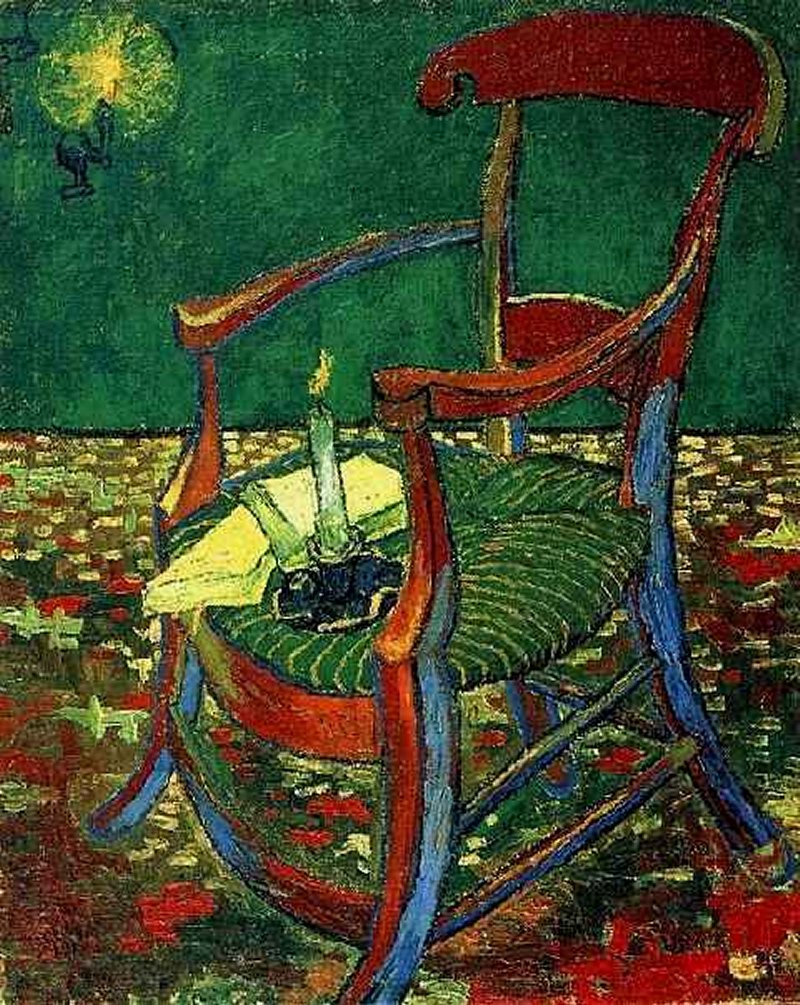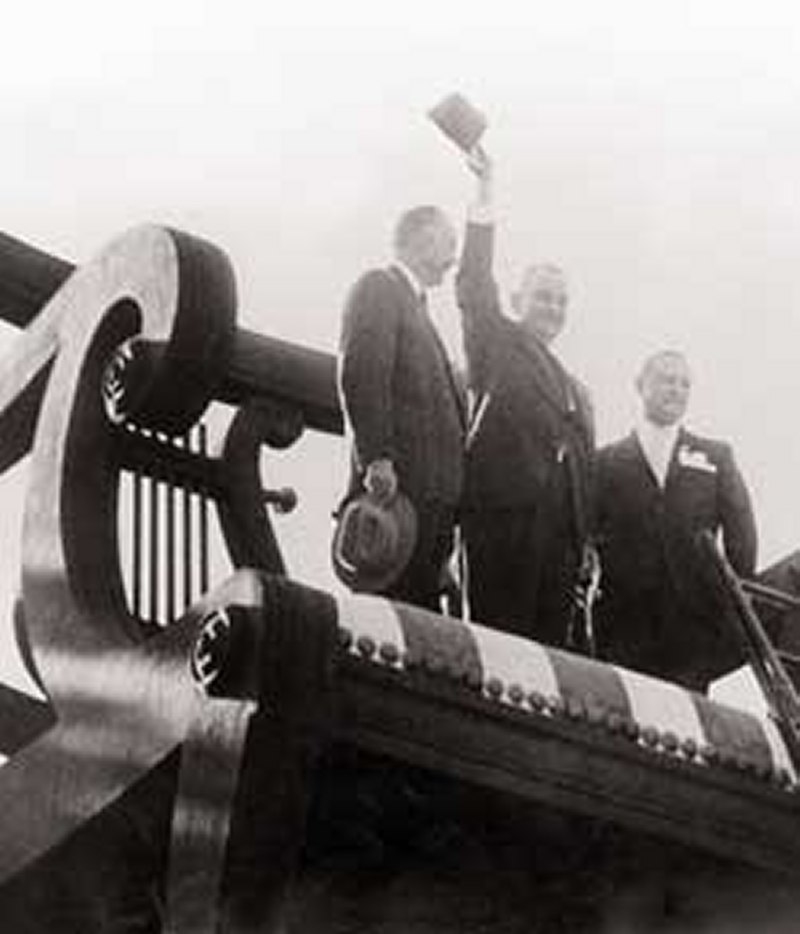![]()
The Charlotte News
Thursday, December 20, 1945
THREE EDITORIALS
![]()
![]()
Site Ed. Note: The front page reports that at Nuremberg, in the last day before the Christmas recess until January 2, American prosecutors presented the account
This incident was used as the excuse by Hitler to launch the blitz on Poland the following early morning, September 1, 1939, starting World War II. The trick was planned by Reinhard Heydrich, in May, 1942 killed by members of the Czech underground outside Prague, his death becoming in turn Heinrich Himmler's excuse to order the destruction of the village of Lidice, claimed to harbor the assailants, and the killing of virtually all of its male inhabitants and internment of its children and females, to be exterminated in the camps.
The presentation also described the Gestapo's power and organization in relation to the S.D., and the organization of the SS and its relation to the concentration camps.
Justice Robert Jackson, lead American prosecutor, stated that it would take another week after the recess to complete the presentation of the American case against the 22 Nazi defendants, Martin Bormann being tried in absentia.
The Nazi defendants were going to be invited on Christmas Day to join in carol singing, although they would not partake of any special Christmas meal or receive gifts.
It would, no doubt, bring back memories of the good old days
In sympathy for their plight, giftless at Christmas, we could supply the Nuremberg defendants maybe with a Telefunken H-bomb
General Marshall arrived in China to begin his tenure as Ambassador, with a mission to work out a peaceful compromise between the Communists of the North and the Government forces of Chiang Kai-Shek.
The joint Congressional committee investigating Pearl Harbor agreed to extend its life from January 3 to February 15. The committee heard testimony that on December 6, 1941, a joint operations statement was signed by Admiral Thomas Hart and British Admiral Tom S. V. Phillips, with the belief in mind that initial Japanese aggression would be against Truk.
The plan did not arrive at the War Department until 11:00 p.m. on December 6 and was not decoded for another eight or nine hours. After the attack, Admiral Stark approved the plan.
Initially, the American high command had refused to sign such a joint operations statement as the British had insisted on drawing a line in the water beyond which Japanese penetration would be considered a casus belli.
Congress adjourned for the holidays until January 14. A record appears of the year's active session, which included ratification of U.S. membership in the U.N., ratification of U.S. participation in the Bretton Woods Agreement establishing the World Bank and International Monetary Fund, and extension of the Reciprocal Trade Agreements Act.
General Motors stated its intent to withdraw from participation in the Government's fact-finding committee hearings if it would be asked to open its books for inspection to determine profits.
The UAW continued to decline to accept the Ford offer of a 12.4 percent increase in wages and refused to believe the company's claim that it faced a loss of 35 million dollars in 1946.
In Windsor, Ontario, the 10,000 Ford workers who had been on strike for 99 days agreed to return to work after acceptance of a proposal for Government arbitration.
In Lula, Ga., a freight train collided with the rear of a passenger train of the Southern Railways, killing three persons, two of whom were sailors on the passenger train, and the third, the engineer of the freight. The cause of the accident was a short in the control signal caused by a frozen line which had then broken and shorted on telephone and telegraph wires.
In East Orange, N.J., an elderly woman of German descent who had died on November 4 bequeathed her savings account of about $500 to the young son of Bruno Hauptmann, the convicted and executed kidnaper and murderer of Charles and Anne Morrow Lindbergh's infant son. The woman stated in her will that she knew no member of the Hauptmann family but believed the boy would suffer through life for his father's acts and so wished to help.
The cold weather and snow continued across the country, with temperatures of 11 degrees in Memphis
Freck Sproles commends publisher Curtis B. Johnson of The Charlotte Observer, the rival newspaper to The News, for his contribution of $100 to the Empty Stocking Fund sponsored by The News. Meanwhile, the fund had grown by $264 to $5,772.94.
Curly-Locks
On the editorial page, "Agreement on Housing" discusses the effort to convert Morris Field barracks to emergency housing for returning veterans and the unified commitment to bring the plan to fruition.
"A tragic Christmas is still in prospect for hundreds of homeless and embittered veterans, but we can, for the first time, hold out real hope that we're on our way to providing them with some degree of the shelter and security they have earned."
"For National Defense" lauds the President for his firm stand on joining the Army and Navy under a single Defense Department, eliminating the air of uncertainty which had come to pervade many of his public statements in recent months, lending to them the suggestion of waffling and the tendency toward too ready willingness to compromise. In calling for immediate passage of the bill, the President had stated forcefully, "Further studies of the general problem would serve no useful purpose."
Now the most determined of the Navy brass hats who wanted to retain their independence as a military branch had to see the writing on the wall.
The piece remarks that it was too bad that the President had been this forceful only in the area of national defense and not extended it to support of the U.N.
"The President, we fear, is far more concerned with winning World War III than he is with preventing it."
"Orphan Annie's Ears" discusses Mr. Tidnab
Oh, this is just too violent and terrible for Christmas.
Next we shall probably be hearing from Mr. Pink
Children, do not read these comic strips and view those cartoons. We warn you. They are designed to turn you into psychopaths as adults.
Anyway, Annie was worried of her ears. For good reason, because Mr. Tidnab
On a more serious note, the piece remarks that Annie viewed Mr. Tidnab
The editorial says that, though her isolationism reminded of the Chicago Tribune, she nevertheless enjoyed the right of free speech. It was not worrisome to have such isolationism coming from the lips of a child in the strips
Drew Pearson reports that General MacArthur had, two months earlier, refused a request by President Truman to come to Washington to discuss his policy-making tendencies in Japan, having been instructed by Undersecretary of State Dean Acheson that his role was to implement policy, not make it. The General had told the President that he could not come at that time but would like to defer the trip until the spring, as there was so much to be done in the meantime in Japan. The President had not made an issue of the situation, but it was the first time in memory that any military officer had so behaved.
The War Department, meanwhile, maintained a special office to draft diplomatic messages to General MacArthur.
The remainder of the column is devoted to a responsive letter from Douglas Aircraft to Mr. Pearson's two previous columns, especially the previous day's entry, stating that Douglas had sold the blueprints in 1939 for the DC-4 to Japan in derogation of State Department policy.
The company responded that the Japanese delegation had visited the Los Angeles Douglas plant in October, 1939 only after the request from the War and State Departments to allow them to do so. Under regulations, the company could not have behaved otherwise.
It then explains the established War and State procedures for such visits by foreigners and that the Army Air Force was responsible for conducting the plant tour, bypassing any confidential or military production lines. It hedges, however, in saying that it was "confident" that these procedures were followed, though not stating affirmatively that they were.
Marquis Childs states that 40 percent of the million men per month being discharged from the military were faced with the housing shortage extant in the country. Since the President's plan on housing had set a price cap of $10,000, well above that which the average veteran could afford, it promised to do little to alleviate the shortage. Most veterans could pay no more than $50 per month for housing, meaning a $6,000 house. These houses would not be affected under the plan and it promised no incentive to builders to build them.
Meanwhile, OPA and its rent controls would expire without Congressional extension on June 30, 1946. Local control of rents would be subject to local political pressures. And the National Association of Manufacturers was recommending a policy of lifting restrictions, which would lead to runaway inflation.
Samuel Grafton reports of the fear in Germany of food riots during the winter. The Army was busy therefore stockpiling food as fast it could. The food would likely not afford more than the 1,550 calories per day to which the Germans had been limited in consumption at near starvation levels, but it would help.
There was fear also of food riots in France and Italy. France had declined UNRRA food and was reliant on shipments from the U.S. and Canada. But if the food were diverted from Germany, it might become a question of where Americans wanted to allow conditions to persist which might prompt food riots. Enemies of democracy in France would not mind seeing food riots there.
While Germany should not be allowed to starve, if it came to a choice, it would be better to have such riots
Dorothy Thompson finds the current auto workers strike at G.M. and the threatened strike at Ford to be more than just a demand for a 30 percent increase in wages. It was, she asserts, a part of the overall twentieth century movement of workers across the world to bring about economic democracy. But the problem was that the alternative appeared to be socialism, with government ownership of all industry, which ultimately, as in Germany and Italy, had led to enslavement of the proletariat.
The ideal, she suggests, was the American goal to eliminate the proletariat and establish a strong American middle-class.
"The workers must know that the present 'revolution' is merely a means of confirming their dispossessed condition in return for that ultimate of equality, security, and continuity of employment, which is always in slavery. The slave is never out of work and all slaves are equal. The 'revolution' compounds all the evils of monopoly capitalism, plus concentration camps for any future revolutionists—or even for strikers.
"It is the twentieth-century formula for the suppression of rebellion, the supreme reaction, called 'progress'."
![]()


![]()
![]()
![]()